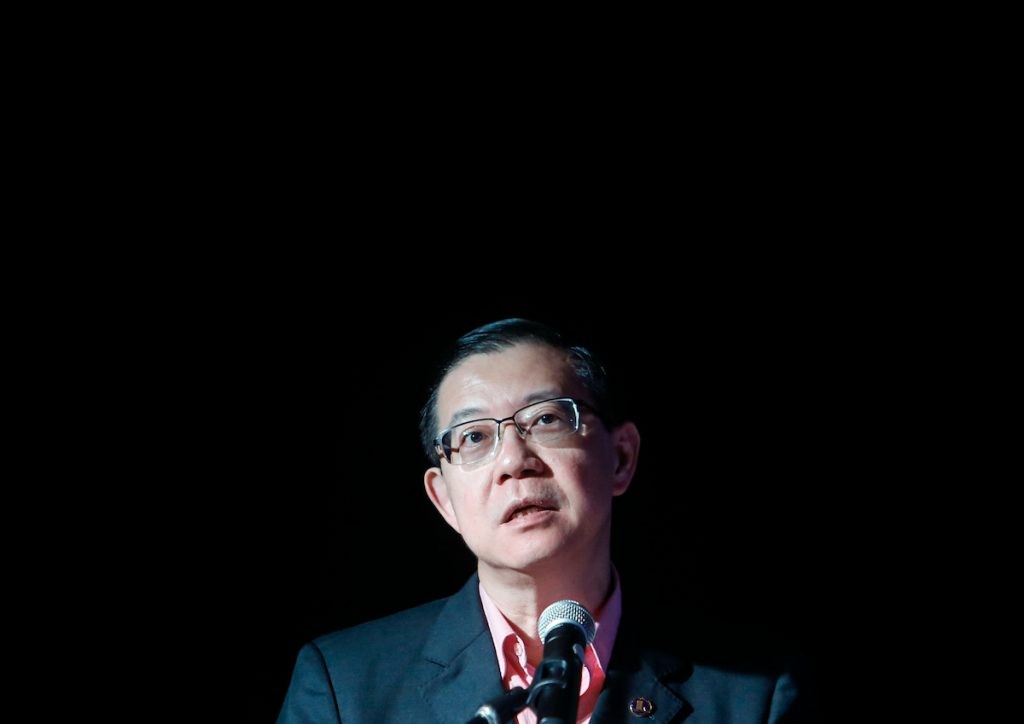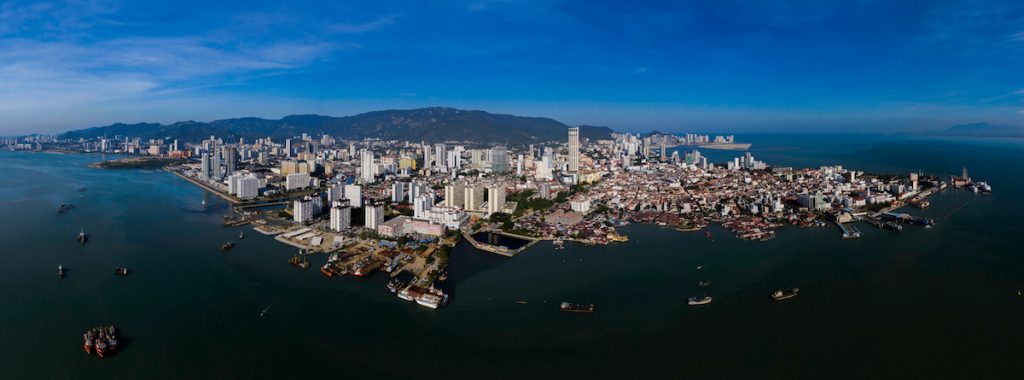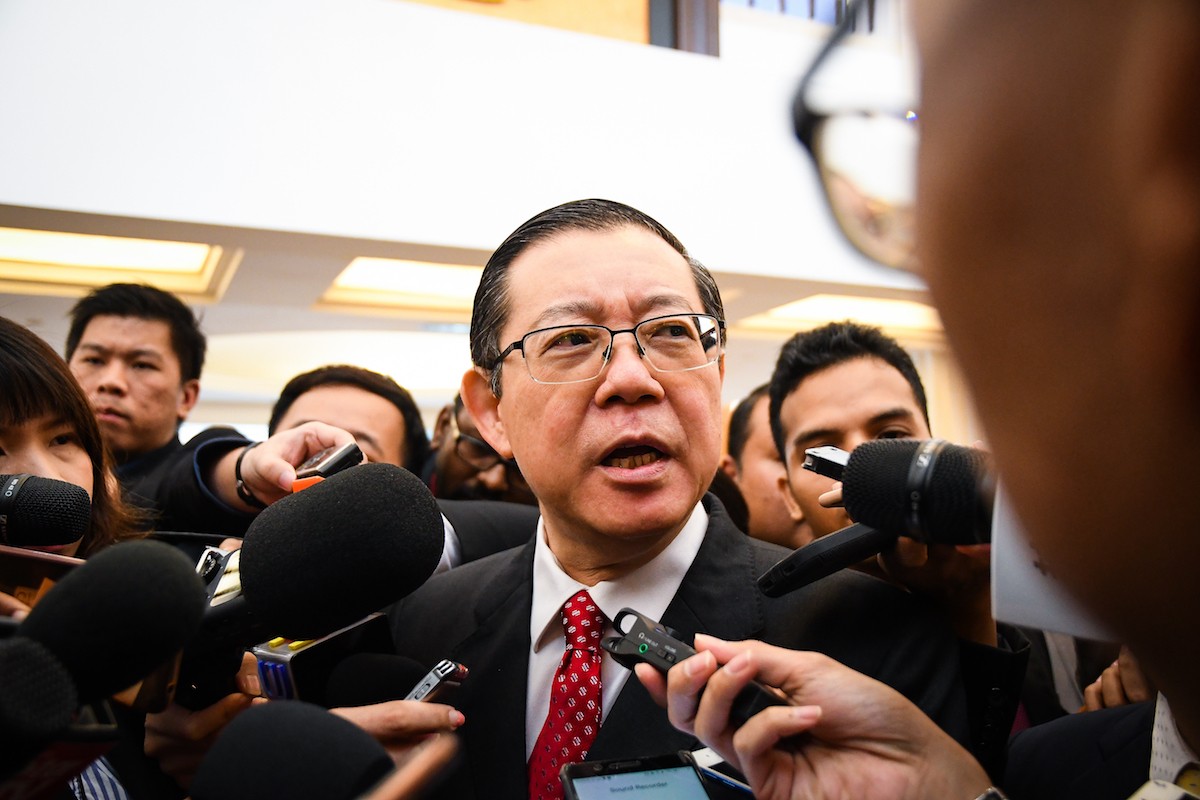As the current Malaysian administration stumbles through its first six months in charge, the manner in which it is trying to cement its authority leaves a bitter taste in the mouth.
In the past few weeks, Democratic Action Party (DAP) secretary-general Lim Guan Eng — a key figure in the Opposition — has been arrested and charged with trying to induce a bribe from construction contractor while Lim was chief minister of Penang.
Meanwhile, his wife Betty Chew was also arrested and charged with corruption over a property deal the couple made a few years ago.
In both cases, the charges reek of political character assassination, while at the same time demonstrate the lengths to which Prime Minister Muhyiddin Yassin and his conservative Perikatan Nasional cabinet will go to move from political survival to long-term security.
For Guan Eng and his father Kit Siang, these corruption charges are just another chapter in their family’s long battle with the government and indeed the political system.
The Lims will be forever known in Malaysia as the bedrock of the DAP, an offshoot of Lee Kuan Yew’s People’s Action Party (PAP).
When Lee took Singapore out of Malaysia in 1965, the party name naturally went with him and those who were left rebranded and reformed into the DAP, basing itself in Penang, until recently an ethnic Chinese majority state.
So, in a racially charged country, Malay parties had little difficulty in painting the DAP as a Chinese party espousing anti-Islam and anti-Malay values, despite the DAP’s social democratic ideology and membership open to all races.
Kit Siang and Guan Eng have had multiple brushes with the authorities, having been imprisoned for dissent on a number of occasions, notably rounded up with more than 100 other political opponents and activists in the infamous Ops Lalang sweep in 1987, when they spent nearly 18 months in detention without trial.
However, bit by bit, they have chipped away at the institution that seeks to marginalise them.
The watershed came in the 2008 general election when the DAP (with a bit of help from ally PKR) won control of Penang, which it has maintained ever since, investing Guan Eng as chief minister from 2008-2018.
In showing its contempt for the party, federal government has refused to provide any funding to the state for the past decade.
In spite of this, Guan Eng has managed to drive Penang forward, using his socialist principles coupled with his financial acumen to provide for the people.

Since coming to power, policies of transparency and meritocracy — mirroring those that were the cornerstone of Lee’s Singapore — have allowed Penang’s economy to blossom, even in the face of a financial crisis and an uncooperative central government.
Systematic attempts by the Malay-led government to demonise the DAP and Lim as Muslim-hating gangsters failed, in the island state at least.
Penang, once dependent heavily on tourism, is now known to some as the Silicon Valley of the East, becoming a hub for high-tech manufacturing.
Meanwhile, its reputation as a place to do business cleanly has also attracted a variety of finance houses and shared service multinationals.
International giants have laid solid foundations in the state, pouring in billions of dollars in investment and fuelling the state government’s long-term ambitions.
The knock-on effect has been net internal migration to Penang from other states, as people clamour for jobs and a better standard of living. Penang was also the first state in Malaysia to introduce free internet and free public transport.
Despite this influx of people, Penang still boasts the lowest unemployment rate of any state in the country, including those that fudge their numbers to keep the PM happy.
However, nationally Guan Eng and the DAP still face an uphill struggle for acceptance. Almost all of the party’s gains in terms of support over the years have come at the expense of the Malaysian Chinese Association, once the voice of the Chinese community but now a token representation in the government with its two MPs.
Yet, there is still a deep sense of mistrust of the DAP among Malay communities, even if they don’t fully buy into the government propaganda, due to the overwhelmingly ethnic Chinese make-up of party membership.
The DAP has admitted it is near impossible to penetrate the Malay-dominated constituencies, but questions have also been raised as to whether it is deep seated suspicion or merely a matter of approach.
Repeated complaints from voters have centred on the party seeming aloof and only interested in its national agenda, apparently unconcerned with local matters.
As every Malaysian outside the DAP knows: in rural areas, local matters are everything.
Moreover, before the reform coalition swept into power in 2018, Guan Eng and his party had developed a reputation for arrogance and intransigence among their peers in PKR, Bersatu and Amanah.
Added to which, Guan Eng’s attempts to grab headlines and expose wrongdoings may have worked when he was a state chief minister in opposition, but as a member of the cabinet it was not the done thing.
Nevertheless, it is arguably Guan Eng’s crowning achievement as chief minister of Penang with which the government seeks as his undoing.
He pushed through the Penang transport master plan, a massive infrastructure network of road and rail links valued at roughly US$1.5 billion.

The government accuses him of demanding a kickback from a contractor to guarantee a tender, even though the process was open and transparent and after the contractor having previously gone on record saying he was thankful for not having to bribe anyone.
Meanwhile Chew’s case is the same the government threw at Guan Eng in the run-up to the 2018 general election and which the high court subsequently threw out.
However, should the government manage to press home this highly dubious legal assault, it would be a bitter blow to democracy in Malaysia.
While Kit Siang and Guan Eng have built a party that remains stoically committed to those tenets of transparency, meritocracy and the rule of law, there are no real contenders to replace either father or son.
With a divided party, it stands to reason that its alliance with its volatile PKR friends, in particular, would be in danger of collapse.
It has been Guan Eng standing shoulder to shoulder with PKR leader Anwar Ibrahim through thick and thin that has kept their coalition together for more than 20 years, knowing that a united front is the best way forward.
Yet, senior figures in his party do not seem so sure, especially in light of recent events.
Gutter politics indicative of PKR led to the collapse of the PH government earlier this year and some people in the DAP ranks believe they should distance themselves from this behaviour.
Meanwhile, the outwardly charismatic Anwar’s chequered past lends weight to the argument the DAP should go its own way.
The problem therein is the party does not have the support to represent the people effectively alone, so without a serious and united opposition, Malaysia will slip back further into the divisive void of colonial era politics.
There, the only result is the privileged few profit from the downtrodden many, regardless of race or religion.
Gareth Corsi is a freelance journalist based in Malaysia. The views expressed in this article are the opinions of the author and do not necessarily reflect the editorial stance of LiCAS.news.







